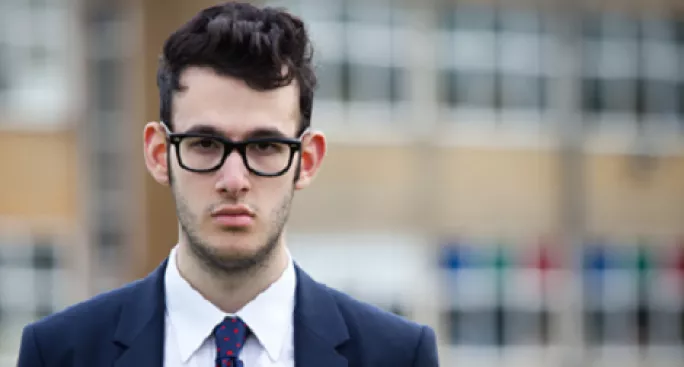‘What if the answer to underachievement is trapped inside the mind of an overworked NQT?’
Oliver Beach, former star of Tough Young Teachers, is now second-in-charge of economics and business Studies at Central Foundation Boys’ School in London
Will we ever have a fair education for all? According to 54 per cent of the audience at a Fair Education Alliance event this week, the answer is no. And this is despite the fact that these individuals are responsible for major educational change in literacy, research and enterprise, among other areas.
The event sparked important questions: who is creating systemic change to address fundamental educational issues in the UK? Who is directing this change? And are these people effectively consulting with those who make change happen?
Certainly, the people higher than teachers in the educational food chain - education secretary Nicky Morgan, Ofsted chief inspector Sir Michael Wilshaw, Labour education spokesman Tristram Hunt and their ilk - must not consider themselves omniscient and should listen more. Indeed, in order to create change and defeat the major educational obstacles affecting young people, we must collaborate at all levels.
Currently, there is much talk of collaboration. The thinktank Policy Exchange, for example, spoke recently of academy chains sharing best practice. In theory, horizontal organisational collaboration can be effective, but what is most important is for individual teachers to share with each other. Policymakers are quick to suggest that peering over the neighbour’s hedge might be helpful, but I find that engaging with each other within our own schools creates the most positive change.
So how do we improve these channels of discourse? As with many of the events I’ve had the privilege of being invited to, this one lacked a call to action. Too often teachers are forced to think on a macro scale - about curriculum change, for example - but not given the leisure to think about the micro-questions. Teachers need time to identify small-scale problems in their schools and to be supported in generating solutions with measurable outcomes that can be widely shared. If they were given this opportunity, they would feel more empowered to make a contribution.
So what is needed, then, is to involve more teachers in making and debating policy and, importantly, to raise awareness of the impact they can have. Yet they are overwhelmed by workload, curriculum change and pressure from leadership, both in their own schools and from government. What if the answer to underachievement is trapped inside the mind of a newly qualified teacher who is too overwhelmed to think of anything except key stage 2 levels?
How do we encourage more teachers to engage with educational research? How do we energise them to look past core textbooks and discover key educational issues that they could work to change? In order for us to be a real movement working towards ensuring a fair education for all, more teachers must engage with each other on policy and practice issues, not just the usual bloggers and Twitterati. We all came into this profession to make a difference, after all.
So what’s your call to action from this article? Here are some ideas:
- Speak to teachers in your school about how you can narrow the attainment gap at GCSE.
- Work with teachers in different subjects to devise learning strategies for the most vulnerable students.
- Engage with other teachers in your local authority; discuss your community’s particular problems and work on solving those.
- Challenge local businesses to step up and support young people in getting into work.
- Find out about the plethora of social enterprises going on - mentoring young people or fighting criminal behaviour through boxing, for example.
As we look forward to a new year, we need to think about the change we want to make in our schools and communities. We need to think about how we can motivate each other to solve problems and help our young people. Policymakers and organisational leaders need to visit those lower down the hierarchy and listen to their views on best practice.
More needs to be done than Ms Morgan’s workload surveys and chatting at debates. Teachers came into education to make a difference. They already generate solutions to a plethora of challenges every day. So I say to our political overlords: find us, speak to us and we can conquer them all.
Keep reading for just £1 per month
You've reached your limit of free articles this month. Subscribe for £1 per month for three months and get:
- Unlimited access to all Tes magazine content
- Exclusive subscriber-only stories
- Award-winning email newsletters




